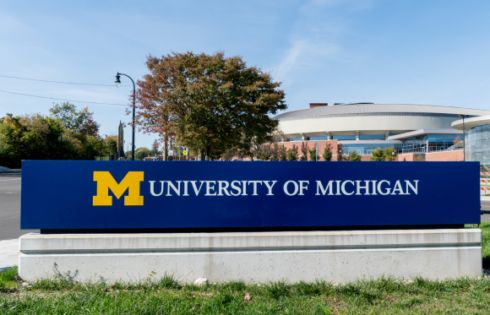
In today’s Stanford Daily, we witnessed the second op-ed stating opposition to the return of ROTC of the quarter. The first was a straightforward and predictable assault on ROTC as a projection of U.S. militarism. The arguments were far out of the mainstream and will not likely be stumbling blocks for the ROTC campaign.
Today’s op-ed, from the Stanford Students for Queer Liberation, introduces a new wrinkle: military discrimination.
In my mind, the piece laid out three main arguments/claims:
- Stanford’s Faculty Senate doesn’t actually care about the Don’t Ask, Don’t Tell policy: “Not only do Senate members demonstrate an indifference to DADT, even as they co-opt its language, they also betray barely concealed contempt for proponents of its repeal.”
- The military discriminates in other ways in addition to DADT, such as against transgender people. Also, its recruiting tends to draw most heavily from populations that are poor, people of color, and recent immigrants.
- A la op-ed #1, ROTC should not be allowed on campus because it is a militaristic institution: “As an organization that supports a radical queer political framework, we oppose ROTC as a representation of militarism.”
I’ll address the three arguments briefly in turn. Their first claim is simply false – one need simply examine minutes from the numerous Faculty Senate discussions to see that the body, for the most part, sees DADT’s overturn as a prerequisite for the return of ROTC.
Their second argument regarding military discrimination is a classic example of how opponents of the military have continued to find excuses for not returning ROTC to campus. First, it was Vietnam and the draft; now it’s DADT. And SSQL argues that even if DADT is overturned, there are many other reasons that ROTC cannot return. To critics of the military: yes, the United States military is an imperfect institution. And yes, taking steps to make it a more inclusive organization will likely improve it. However, the contention that the military must be perfect before ROTC can be allowed to return only imposes further harm upon the Stanford community and the nation. The Daily’s ed board made this point well:
But holding ROTC hostage to the potential repeal of the policy, which has floundered in Congress despite widespread support from political and military leadership, only empowers a political failure to cause two detrimental outcomes instead of one. Delaying the return of ROTC just adds to the damage done by DADT.
Finally, the op-ed argues that a militaristic institution should not be allowed on campus. The piece’s authors identify this contention as part of their “radical” agenda, and it is indeed exactly that. Attempts to separate the military from our lives are both naive and utopian. Even if the military is the most evil institution on earth, it’s here to stay, and we might as well give it some of the best leaders this country has to offer to make sure that it is led responsibly.
Furthermore, the political beliefs of some must not be allowed to dictate the actions and speech of all others on campus. Kyle O’Malley, a writer for the Stanford Review, made that point effectively in a recent op-ed:
Stanford’s considerations should be based solely on whether ROTC is fairly administered and presents an opportunity students can benefit from, just as would its considerations of any private company’s proposal for a program on campus. To extend its considerations beyond this, to use the ROTC program to make some political statement, would be worse than denying interested students that opportunity. It would be an insult to the moral capacities of all students, to our ability to judge the program independently and to reach our own conclusions—all in the name of an ideological position fundamentally misapplied.
Alex Katz blogs at Fiat Lux and is the editor-in-chief of the Stanford Review. He is a member of the Student Free Press Association.
Like The College Fix on Facebook / Follow us on Twitter





Please join the conversation about our stories on Facebook, Twitter, Instagram, Reddit, MeWe, Rumble, Gab, Minds and Gettr.